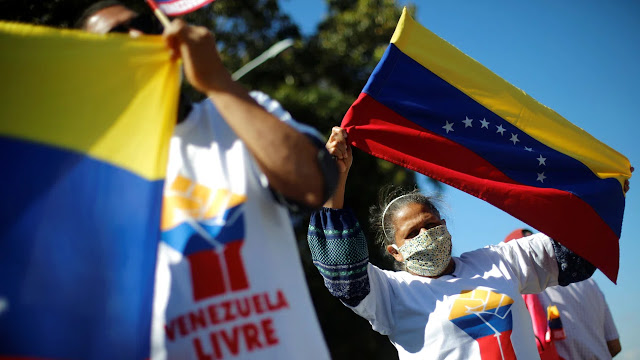The Bolivian Elections
The Bolivian Election Commission issued a statement recently saying that the long-awaited presidential election will be held on October 18th. However, this is no ordinary election for the country. To fully understand its significance, and the candidates who are running, it is necessary to go back to the last Bolivian election in October of 2019.
October 2019 saw Evo Morales run for an unprecedented and constitutionally suspect fourth term as president. Morales had been in power since 2005 when he and his party, Movement For Socialism (MAS), took power from the center-right incumbent Carlos Mesa. This election was impactful not just for Bolivia, but for Latin America as a whole. Morales was one of the first fully indigenous presidents in Latin America, and his policies signaled a shift to the left throughout the region after years of neoliberal economic reforms under center-right leaders. In 2016, Morales issued a nationwide referendum on amending the Constitution to allow him to run for a fourth term. The referendum was narrowly defeated. That would have been the end of it - if the Election Commission had not intervened. They gave Morales the green light to run in 2019, so he did.
Evo Morales won the October 2019 elections, but not without controversy. Early tallying of the votes showed a close race, but then the counting stopped. For a full day nothing was reported from voting centers and after 24 hours, when they did finally respond, the tally gave Morales a very narrow win. The suspension of the counting of ballots raised suspicion amongst Morales' opposition and they called in the Organization of American States (OSA) to investigate. The OSA found inconsistencies in the voting process which brought calls of fraud from the opposition and days of protests from the people. After a few days Morales called for another round of elections, but at this point it was too late and the army asked him to step down from power on November 10th, Morales has been in exile ever since.
Taking Morales' place was Jeanine Anez, a relative political unknown in the country. Anez, with the tacit support of the military and implied support of the United States, formed a transitional government with the promise to hold elections quickly - elections that she would not run in. And here is where we run into a problem. It has been 9 months and there still has not been an election in Bolivia. One was scheduled for May, but because of Coronavirus it was pushed back, and now, finally, the date is set for September 6th. Possibly more worrying is that Anez has decided to run, and while at first this seemed a foolish decision her polling numbers have been steadily improving. So who else is running?
Luis Arce is the candidate from the MAS, and the party still holds a lot of power in Bolivia. His platform is much the same as Morales', including progressive social policies aimed at alleviating poverty and wealth inequality through a progressive taxation system. The base of the MAS is made up of rural Bolivians, the urban working class, and indigenous peoples.
The aforementioned former president Carlos Mesa is also running. Mesa is a former journalist and a member of the Citizens Community Alliance. He is running as a center-right candidate focused on free trade and the opening up of Bolivia's markets to foreign capital. His base of support comes from upper-class Bolivians, as well as businessmen and land owners.
Lastly, we have Anez, who is running mostly on her leadership during COVID. Bolivia was one of the first countries to issue a lockdown in Latin America, and while the region has been hit especially hard Bolivia has faired well. Under Anez, the country has reported less than 3,000 deaths. For comparison, Peru has reported 18,000 deaths while Colombia and Chile are both sitting around 9,000. Bolivia also instituted cash payments to low-income citizens to ease their burden. These measures have seen her polling numbers jump dramatically, and they may also be the reason they decline.
Like in many elections happening in the near future, COVID is likely to be a kingmaker. If Bolivia can keep cases down - and they have been rising in recent weeks - Anez could have an easy day at the polls. However, if COVID gets worse the election becomes more of a referendum on Morales' policies. Arce is politically similar to Morales, and his polling numbers so far show that the discontent felt by the people in October was towards Morales usurping power rather than towards his policies.
From a US foreign policy viewpoint, it would be beneficial if Mesa won. Morales throughout his presidency decried Western, and especially US, imperialism in Latin America. Morales limited trade and investment from the US. There are also reports that Morales turned a blind eye to coca production in the center and west of the country. Mesa would be much more likely to tackle issues like coca production, and he would almost certainly open up Bolivia and its resources to the US. Is this a good thing? It's not for me to say, but rather you to make up your own mind on, just like the Bolivian voters.
Thank you for reading!
-Evan
Bibliography
Abdalla, Jihan. 2020. “Bolivia’s Parliament Passes Law Calling for Elections in 90 Days.” Al Jazeera. May 1, 2020. https://www.aljazeera.com/news/2020/04/bolivia-parliament-passes-law-calling-elections-90-days-200429173600127.html.
Freeman, Will, and Lucas Perelló . 2020. “Bolivia’s General Election Gains Momentum.” Global Americans . June 18, 2020. https://theglobalamericans.org/2020/06/bolivias-general-election-gains-momentum/.
Kurmanaev, Anatoly, and Maria Silvia Trigo. 2020. “A Bitter Election. Accusations of Fraud. And Now Second Thoughts.” The New York Times, June 7, 2020. https://www.nytimes.com/2020/06/07/world/americas/bolivia-election-evo-morales.html?auth=linked-google.
n.d. “Bolivia Overview .” Corona Tracker . Accessed July 26, 2020. https://www.coronatracker.com/.
Sabatini, Chris, and Ken Frankel. 2020. “An Interview with Former Bolivian President and Current Presidential Candidate Carlos Mesa.” Global American. July 3, 2020. https://theglobalamericans.org/2019/07/an-interview-with-former-bolivian-president-and-current-presidential-candidate-carlos-mesa/.





Comments
Post a Comment